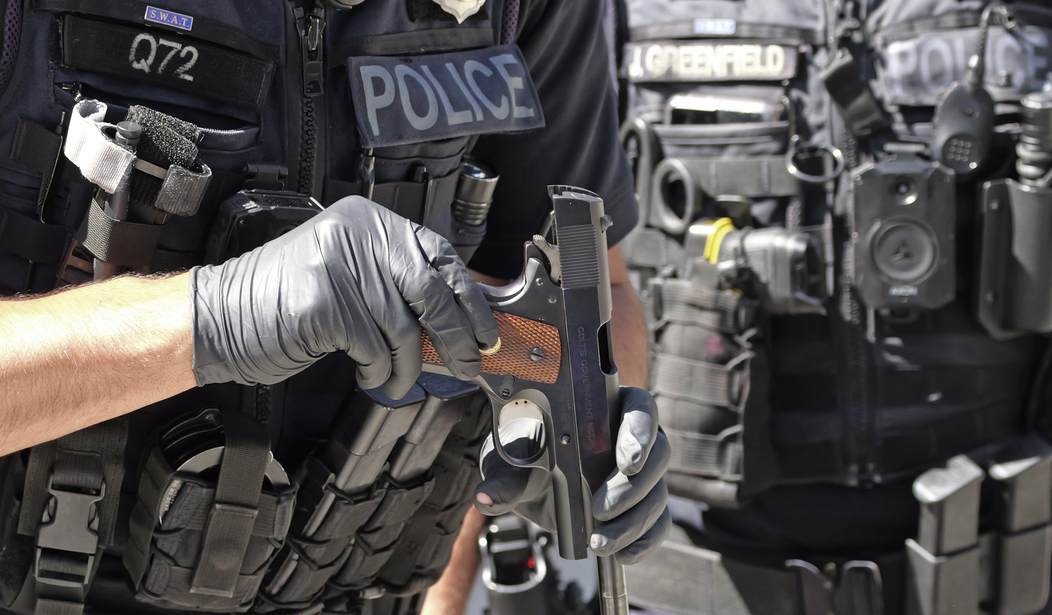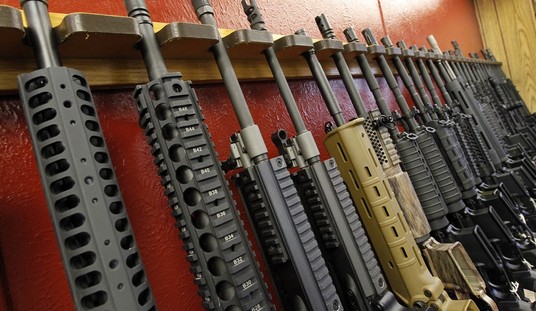Gun “buybacks” are a waste of time and money, but at least when the funding comes from private sources taxpayers aren’t on the hook for these idiotic compensated confiscation events. In Houston, Texas, however, officials are getting ready to launch another “buyback” that’s coming indirectly out of your wallet.
On June 10th, the city of Houston will be holding its fourth “buyback” in recent months, and according to the Houston Chronicle the money spent on collecting unwanted firearms is coming from Uncle Sam and Grandpa Joe.
Participants can receive $50 gift cards for turning in non-functioning firearms, $100 gift cards for rifles or shotguns, $150 gift cards for handguns and $200 gift cards for semi-automatic rifles, per the announcement.
“The gun buyback program is completely anonymous… no personal information will be transcribed by HPD officers, nor will any warrants or records be checked by them,” Mayor Turner said during a Tuesday press conference. “There will be a 25 limit per vehicle,” HPD Chief Troy Finner said during the same conference.
The buybacks are part of One Safe Houston, the City of Houston’s sweeping $53 million “crime reduction initiative” funded by the American Rescue Plan Act, President Joe Biden’s most recent pandemic relief bill.
What does a gun “buyback” have to do with COVID relief? About as much as it does with reducing crime, which is to say not much at all. Even our anti-gun opponents at The Trace have admitted as much.
The most rigorous studies of gun buyback programs have found little empirical evidence to suggest that they reduce shootings, homicides, or suicides by any significant degree in either the short- or long-term.
This isn’t surprising, experts say. “Even under the assumption of optimal implementation, only a tiny fraction of guns in a given community are going to be turned into gun buyback programs,” Charbonneau said. “It’s unlikely that research using standard statistical methods will be able to identify the causal impact of buybacks on firearm violence.”
An analysis by The Trace earlier this year found that more than 16 million guns were produced for the U.S. market in 2020 alone, and somewhere between 350 and 465 million guns may be in circulation nationwide. Meanwhile, even the most successful gun buyback events collect only a few hundred guns at a time. For example, over a nearly two-decade period, New York City’s gun buyback initiative collected just 10,000 firearms.
“Turning in small numbers of firearms does not change the fact that they are readily available in many places,” Charbonneau said. “And so you still have a flow of firearms through a community. If you think of it as a supply-side intervention, the supply is barely affected.”
There are other shortcomings, too. Studies have found that buybacks often collect inoperable guns, guns that don’t fit the characteristics of typical crime guns, or guns from people who are unlikely to be at risk of firearm violence. Several studies have found that people who participate in buybacks tend to be older, less likely to be involved in gun violence, and not residents of the city holding the buyback. And many people who turn over one gun still keep other guns at home.
But as The Trace noted, gun “buybacks” are still popular among politicians because, in part, they allow them to say they’re “doing something” to soothe the public’s fears of violent crime.
Houston Mayor Sylvester Turner will no doubt get some positive press coverage about the upcoming compensated confiscation event, and will be able to boast about getting hundreds of guns off the streets. Why should he care that those guns won’t be handed over by violent criminals or that prohibited persons will still get ahold of guns through theft, straw purchases, and the illicit market? It’s not like the money for the city’s “buyback” is coming out of his pocket, and when the event fails to make a dent in the city’s crime rate he can always pin the blame on the Republican legislature in Austin or the lack of an “assault weapons” ban on Capitol Hill.
The only way these compensated confiscation events are going to come to an end is if the local media calls out Turner for wasting money on ineffective anti-gun efforts instead of directing that money towards programs that are proven to reduce crime, or if the pandemic relief money runs out. Until or unless that happens, however, the mayor will continue to reap the public relations benefit of his “buybacks”…. even while public safety continues to suffer.








Join the conversation as a VIP Member